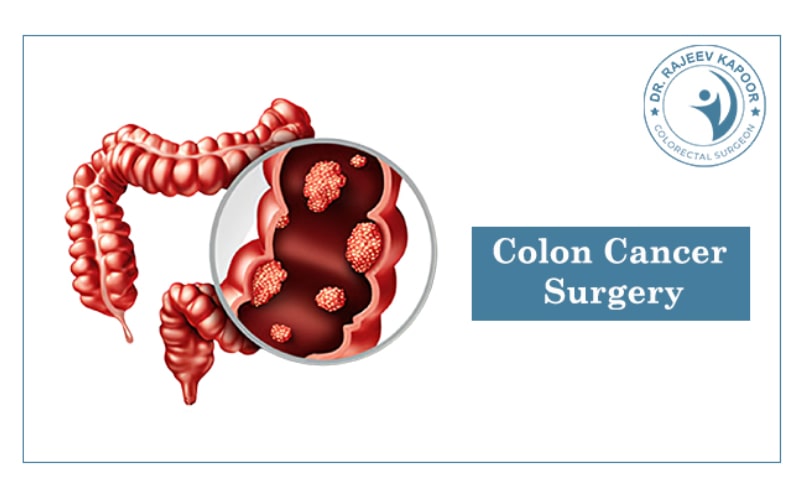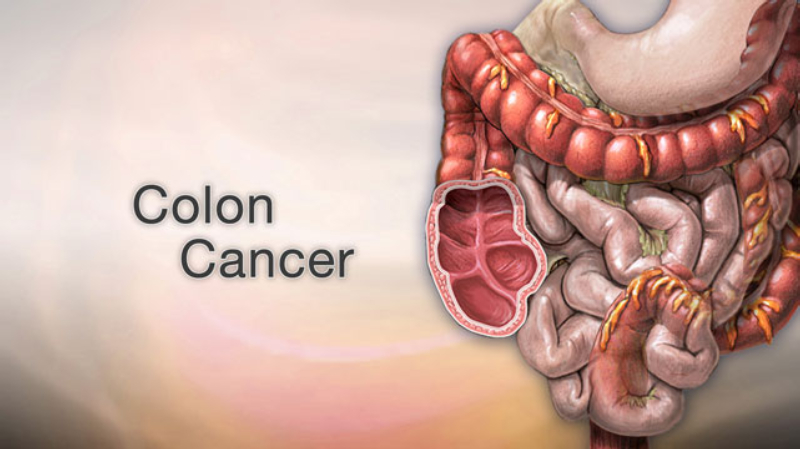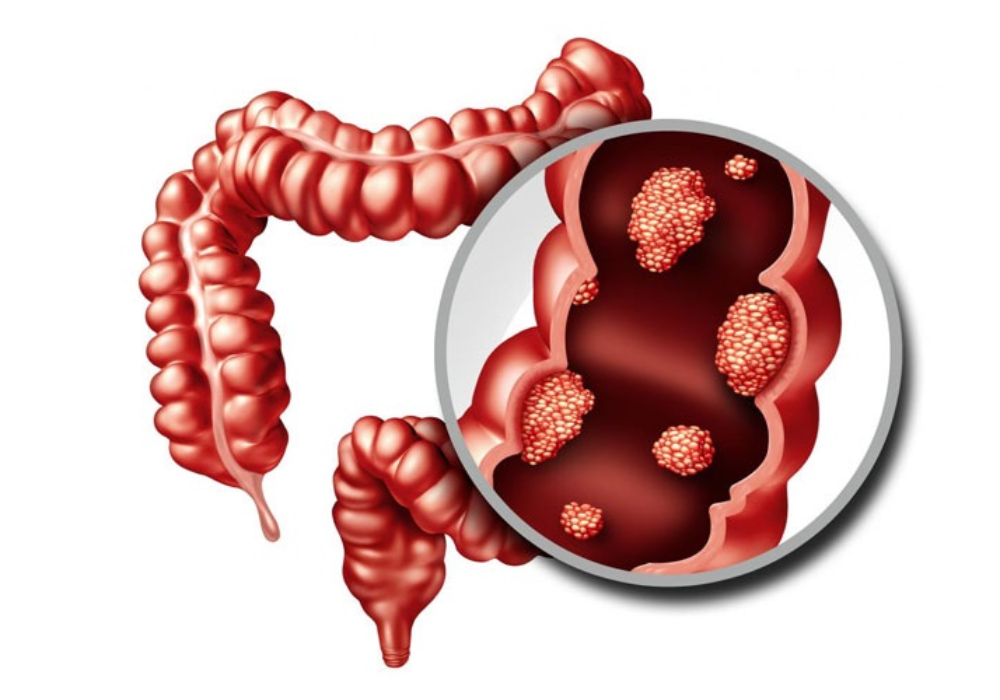Colon Cancer Surgery
Colon Cancer Surgery in Chandigarh
Colon Cancer Surgeon in Chandigarh – Colon cancer is one of the most feared forms of cancer. It is the third most common cancer in the world, after breast and lung cancer. This kind of cancer develops in the colon, which is part of the large intestine. A growing tumor in the colon can have serious consequences if it is not diagnosed and treated on time.
Colon cancer is a type of cancer that begins in the big intestine (colon). The colon is the last part of the digestion tract starting at cecum on right side and ending at rectum and anal canal. Colon cancer commonly impacts older adults, though it can happen at any kind of age. It usually starts as a tiny polyps that form on the inside of the colon and grows larger. Polyps are benign. Gradually these polyps can become colon cancers. Colon cancer is often called colorectal cancer, which is a term that integrates colon cancer and rectal cancer, which begins in the rectum.
Colon cancer is a type of cancer that begins in the big intestine (colon). The colon is the last part of the digestion tract starting at cecum on right side and ending at rectum and anal canal. Colon cancer commonly impacts older adults, though it can happen at any kind of age. It usually starts as a tiny polyps that form on the inside of the colon and grows larger. Polyps are benign. Gradually these polyps can become colon cancers. Colon cancer is often called colorectal cancer, which is a term that integrates colon cancer and rectal cancer, which begins in the rectum.

Large Intestine
Polyps might be tiny as well as multiple, if any type of, signs. For this reason, doctors advise regular screening tests to aid protect against colon cancer cells by identifying as well as getting rid of polyps before they develop into cancer. If colon cancer develops, lots of therapies are readily available to help get rid of it, consisting of surgical treatment, chemotherapy treatment as well as medicine treatments, such as radiation treatment, targeted therapy and immunotherapy.
What are the Signs and Symptoms of colon cancer
A persistent modification in your bowel practices, consisting of diarrhoea or irregularity or a change in the consistency of your faeces
Persistent abdominal pain
A sensation that your bowel doesn’t empty totally
Weakness or exhaustion
Inexplicable weight reduction
Many individuals with colon cancer experience no symptoms in the beginning of the illness. When symptoms show up, they’ll likely differ, relying on the cancer cells’ size and also location in your large intestinal tract.

When to see a medical professional
If you see any one of the above symptoms or signs that stress you, make an appointment with your medical professional.
How does colon cancer starts
Physicians aren’t certain what creates most colon cancers. However, generally, colon cancer begins when healthy and balanced cells in the colon develop modifications (anomalies) in their DNA. A cell’s DNA includes a collection of directions that inform a cell what to do. When a cell’s DNA is harmed and also ends up being cancerous, cells proceed to split– also when brand-new cells aren’t needed. As the cells accumulate, they create a growth. With time, the cancer cells can expand to invade as well as damage typical organs nearby. As well as malignant cells can travel to other parts of the body to develop deposits there (spread).
What are the causes or risk factors of colon cancer?
Older age.
African-American race.
A personal history of colon cancer or polyps.
Family history of colon cancer
Inflammatory digestive tract conditions.
Inherited syndromes like familial adenomatous polyposis (FAP) and also Lynch disorder, which is likewise known as hereditary nonpolyposis intestines cancer cells (HNPCC).
Low-fiber, high-fat diet.
An inactive way of life.
Obesity.
Diabetes mellitus.
Smoking cigarettes.
Heavy use of Alcohol.

What are the causes or risk factors of colon cancer?
• Colonoscopy: It uses a long, versatile and also slender tube affixed to a camera and screen to see your whole colon as well as anus. If any questionable areas are discovered, your medical professional can pass medical tools via television to take tissue examples (biopsies) for evaluation and get rid of polyps.
• Blood examinations
• CEA levels: Tracked gradually, the degree of CEA in your blood may help your medical professional comprehend your prognosis and also whether your cancer is responding to therapy.
• CT Scan
• PET Scan
What is Staging of Colon Cancer?
Staging helps establish what therapies are most appropriate for you. The stages of colon cancer are shown by Roman numerals that vary from 0 to IV, with the most curable stages being I to III suggesting cancer that is limited to the lining of the within the colon. By stage IV, the cancer cells has actually spread (metastasized) to other locations of the body and the cure becomes limited.
How do we treat Colon Cancer?
Treatment depends on the staging of the colon cancer. Type of surgery depends on the location of the colon cancer. Modality of surgery depends on the expertise of the surgeon as well as the stage and extent of the tumor. Therapy for colon cancer generally entails surgical treatment to get rid of the cancer. Various other therapies, such as radiation treatment and chemotherapy, may likewise be advised as required according to the final stage.
Surgery for very early-stage colon cancer like polyps
If your colon cancer is extremely tiny, your medical professional might advise a minimally invasive method to surgical procedure, such as:
- Polypectomy: If your cancer is small, localized, entirely included within a polyp and in a really beginning, your medical professional may be able to remove it totally with colonoscopy.
- Endoscopic mucosal resection: Larger polyps might be eliminated during colonoscopy making use of unique devices to remove the polyp and a percentage of the internal lining of the colon in a treatment called an endoscopic mucosal resection.
If it is a limited growth in the colon then the options available are:
Keyhole surgical procedure (laparoscopic surgical procedure): In this treatment, your doctor does the operation via a number of tiny cuts in your stomach wall, placing instruments with affixed electronic cameras that display your colon on a video clip display. The specialist might likewise take samples from lymph nodes in the location where the cancer is located.
Open Surgery: The surgery is done by the open method in which a large incision is used. If the tumor is badly stuck all around or it is very large or invading surrounding structures, then this traditional method is used. The decision depends on the operating colorectal surgeon.
Partial colectomy: Throughout this treatment, the surgeon eliminates the part of your colon which contains the cancer, in addition to a margin of regular colon on either side of the cancer cells Your surgeon is often able to reconnect the ends of your colon or rectum. This treatment can frequently be done by a minimally invasive technique (laparoscopy or robotic surgery). Its called right hemicolectomy, extended right hemicolectomy, left hemicolectomy and high anterior resection.
Lymph node removal: Close-by lymph nodes are generally also gotten rid of during colon cancer surgical procedure and then evaluated for cancer.
Ostomy (Ileostomy or colostomy):it is a surgery to produce a method for waste to leave your body. When it’s not feasible to reconnect the healthy portions of your colon or anus, you might need an ostomy. This entails creating an opening in the wall of your abdomen from a portion of the remaining bowel for the elimination of stool into a bag that fits firmly over the abdominal opening. In some cases the ostomy is just short-lived, allowing your colon or rectum time to heal after surgical treatment. In many cases, nevertheless, the colostomy may be long-term.
Surgery for intestinal obstruction: If your cancer is very advanced or your total health really bad, your doctor might advise a procedure to eliminate a blockage of your colon in order to remove your obstruction or bypass it. This surgical procedure isn’t done to cure cancer, yet instead to ease symptoms and signs.
Liver or lung resection:In particular cases where the cancer has actually spread out only to the liver or lung but your general health and wellness is or else good, your physician may advise surgery or other local therapies to remove the cancer. Chemotherapy might be utilized prior to or after this kind of treatment. This strategy gives an opportunity to be without cancer over the long-term.
Chemotherapy
- It makes use of drugs to cure cancer cells. Chemo treatment for colon cancer cells is normally provided after surgery if the cancer is larger or has spread to the lymph nodes. In this way, chemotherapy may kill any cancer cells that continue to be in the body and help reduce the threat of cancer reoccurrence.
- Chemotherapy might additionally be made use of prior to an operation to reduce a big cancer so that it’s much easier to remove with surgery.
- This treatment can additionally be made use of to control symptoms of colon cancer that can’t be removed with surgical treatment or that has actually invaded other locations of the body. Occasionally it’s integrated with radiation treatment.
Radiation treatment
- Radiation treatment makes use of powerful energy sources, such as X-rays and protons, to eliminate cancer cells. It may be used to shrink a large cancer cells prior to a procedure to make sure that it can be eliminated much more easily.
- When surgery isn’t an option, radiation therapy may be made use of to eliminate signs, such as discomfort.
Targeted treatment.
- Targeted medicine therapies concentrate on particular abnormalities present within cancer cells. By blocking these irregularities, targeted medicine treatments can cause cancer cells to die.
- Targeted drugs are typically integrated with other treatments. Targeted medicines are commonly scheduled for people with advanced colon cancer.
Immunotherapy
- Immunotherapy is a medicine treatment that utilizes your body immune system to combat cancer cells. Immunotherapy is usually used for advanced colon cancer. Your doctor might have your cancer cells tested to see if they’re likely to have a good response to this treatment.
Technological Advances in Surgery for colon cancer
Most of the surgery is done with minimal access technology. It could be laparoscopic or robotic surgery. The results are comparable to open surgery. The resultant incisions are smaller and post-operative recovery is quicker.
Follow up after treatment of colon cancer
After the treatment is complete, patients’ needs to be religiously followed up to 5 – 7 years. The follow up plan is drawn up to visit the clinic regularly at periodic intervals. Yearly colonoscopy and scans are also planned. If the tumor is coming back, it is picked up early and dealt with. One should never miss on a follow up visit.
Dr. Rajeev Kapoor is the best colon cancer surgeon in Chandigarh. If you diagnosed with colon cancer, make an appointment today!

Frequently Asked Questions (FAQs)
Can colon cancer be cured with surgery?
Colon cancer can be cured by surgery, but it depends on the stage. If the cancer is detected in early stages, then the surgery is enough to cure the disease. But, if the cancer is detected in late stages, then chemotherapy is recommended to enhance the chances of getting cured.
Does colon cancer patients require radiotherapy?
Usually colon cancer patients are not subjected to radiotherapy. Radiotherapy has a substantial role to play in management of rectal cancers.
Does colon cancer treatment requires chemotherapy?
Requirement of chemotherapy for colon cancer depends on the stage of the cancer. Early cancers will not require chemotherapy and surgery only is required.
How painful is colon surgery?
This surgery is performed by colorectal surgeon and is performed under general anesthesia. The patients are kept under observation for a long period after the surgery. The surgery may take up to 2-3 hours and the patients are required to stay in the hospital for two to five days. With the help of drugs and latest equipment’s the discomfort has been reduced to a great extent. Laparoscopic and robotic surgery causes less post operative pain.
How serious is colon surgery?
Colon surgery is categorized as major surgery. It is a procedure to remove a part or the entire colon. This surgery is called 'colectomy' and is carried out to treat colon cancer, colon polyps, and diverticulitis in most cases. A good colon cancer treatment plan should usually involve colon removal surgery along with chemotherapy, radiation and diet changes.
What is colon cancer?
Colon cancer is a type of cancer that occurs in the large intestine or colon.
What is laparoscopic surgery?
Laparoscopic surgery is done by making four or more tiny cuts in the abdomen and using a camera, called a laparoscope, to view the cancer and proceed with surgery.
What is open surgery for colon cancer?
Open surgery is done by cutting a large incision (cut) in the abdomen to remove the colon cancer.
What is robotic surgery for colon cancer?
Robotic surgery is like laparoscopic surgery but more precise. A robot is holding the instruments while the surgeons manipulates these instruments using 3D vision.
What is the first line of treatment for colon cancer?
Surgery remains the first line of treatment for majority of patients with colon cancer.
What kind of surgeon removes colon?
Colon cancer is a life-threatening disease and requires early diagnosis and treatment. Diagnosis can be confirmed by colonoscopy and biopsy. A colorectal surgeon is the specialist who performs surgery for colon cancer.
What various kinds of surgical modalities offered to colon cancer patients?
The primary treatment for colon cancer is surgery, depending on the location and stage of the cancer. The three types of surgery for colon cancer are: open surgery, laparoscopic surgery and robotic surgery.

